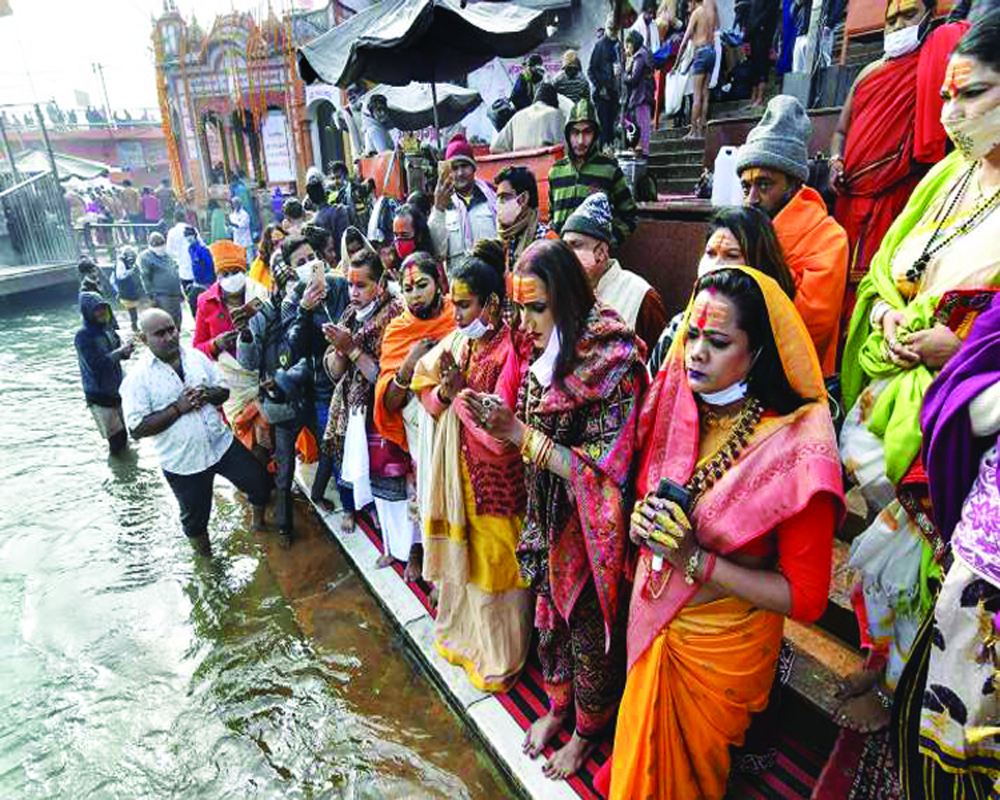The top court has asserted that under Article 47, the State shall regard the improvement of public health as among its primary duties. Here, it seems to have failed us
The World Health Organisation (WHO) has stipulated certain public health and social measures to contain the spread of the Coronavirus after taking into account the levels of COVID-19 transmission. One of the major measures stipulated is to maintain social distancing and avoid congregations.
There is an obligation on the State to adhere to the measures stipulated by the health watchdog which has also played a vital role in eradicating small pox, polio and so on. As the world, particularly India, witnesses an unprecedented health emergency, it is vital to adhere to the COVID-protocols. Historically, the second wave of any pandemic has proven to be more intensive and dangerous than the first one and India is learning this bitter truth the hard way.
The State has an obligation to protect the health of the people. In this context, the State has to regulate all social and religious events which involve congregations so as to prevent the spread of the virus. Apart from the State, every individual has an obligation to regulate his/her conduct and see to it that their behaviour does not result in any adverse impact on society. We Indians have failed in both these aspects.
Permitting road shows and massive rallies during the conduct of the Assembly elections in various States, particularly West Bengal and allowing the conduct of the Kumbh Mela at Haridwar in the middle of the Coronavirus outbreak clearly demonstrates the same. Consequently on April 15, Uttarakhand recorded its highest upsurge in COVID-19 cases. The Centre was fully conscious of the fact that such large congregations would definitely spread the virus, but failed to prevent the same. The State ought to have realised that the “Right to Life” guaranteed under the Indian Constitution overrides the rights conferred by the Constitution in relation to a religious activity.
Article 21 of the Constitution mandates that no person shall be deprived of life or personal liberty except according to procedure established by law. The Supreme Court has held that the “Right to Life” guaranteed under Article 21 includes within its ambit the right to health and medical care. Article 47 a directive principle of State policy stresses on the improvement of public health and so on.
The apex court had expanded the concept of “Right to Life.” It was held that it derives its life breath from the directive principles of State policy. When the constitutional right to manage religious affairs came up for discussion before the drafting committee, the Chairman had proposed to make the said right, subject to public order, morality and health. It was accepted without any debate. This proves the vision of the founding fathers of the Constitution. But we are failing miserably to act in a proper perspective to protect the constitutional rights being enjoyed by us. Lack of preventive measures and the callousness of the general citizens reflect the same.
The State cannot remain a silent spectator when massive congregations, either political or religious, are being organised, which will result in exacerbating the health emergency that we are currently facing. In this context it’s also relevant to examine Article 26 of the Constitution. It contemplates that the freedom to manage religious affairs is subject to public order, morality and health. Therefore, it is not an absolute right. It is conditioned by Article 21 of the Constitution when it relates more particularly in relation to the aspect of public health.
We failed in adhering to the social distancing norms which is a major cause for the spread of the virus. Mahatma Gandhi had said on the aspect of a person’s duty towards society that “the true source of right is duty.” If we all discharge our duties, rights will not be far to seek. If we neglect our duties and run after rights, they will elude us.
The Supreme Court, too, in the Minerva Mills Vs Union of India case, held that there may be a rule which imposes an obligation on an individual or authority and yet it may not be enforceable in a court of law and, therefore, not give rise to a corresponding right in another person. But it would still be a legal rule because it prescribes a norm of conduct to be followed by such an individual or authority.
The law may provide a mechanism of enforcement. A rule imposing an obligation or duty would not cease to be a rule of law because there is no regular judicial or quasi judicial machinery to enforce its command. Such a rule would exist despite any problem relating to its enforcement. Otherwise the conventions of the Constitution and even rules of international law would no longer be liable to be regarded as rules of law.
This shows that an individual plays a vital role in a State and its welfare. Fundamental duties were introduced in part IV A by the 42nd amendment and were based on the recommendations of the Swaran Singh Committee.
The Supreme Court in the Javed Vs State of Haryana case, held that fundamental rights are not to be read in isolation. They have to be read along with directive principles of State policy and fundamental duties enshrined in Article 51A. The top court also asserted that under Article 47, the State shall regard the improvement of public health as among its primary duties. Here, it seems to have failed us.
The writer is a senior advocate in the Andhra Pradesh and Telangana High Courts. The views expressed are personal.


























